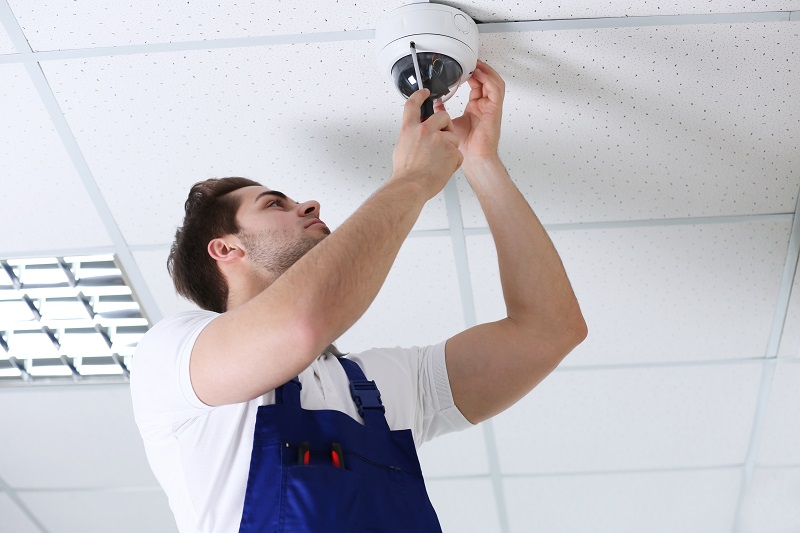Medical security systems are essential for ensuring the safety and well-being of individuals in a healthcare setting including the patients, doctors, nurses, as well as other staff. With the rising demand for healthcare services and the increasing complexity of medical equipment and processes, it is crucial to have reliable medical security systems in such places to safeguard individuals. And, various types of such systems are used for serving different security needs. So, this article will discuss the importance of these security systems and the various types of systems available, including access control systems, surveillance systems, and emergency response systems.
 |
| Medical Security Systems |
What are Medical Security Systems?
Medical security systems are a combination of various technologies and devices that are integrated to ensure the health and safety of individuals present in a medical unit. These systems can range from simple devices such as personal emergency response systems (PERS) to complex telemedicine systems that enable remote consultations with healthcare professionals.
Types of Medical Security Systems:
- Personal Emergency Response Systems (PERS):
PERS are wearable devices that allow individuals to call for help in an emergency. These devices typically consist of a button or pendant that can be worn around the neck or wrist with a wire. In an emergency, the patient can press it and a signal is sent to a monitoring center or designated emergency contact. - Medical Alert Systems:
Medical alert systems are similar to PERS but also include fall detection sensors that can automatically send alerts in case of a fall. These systems can also include medication reminders and other health-related notifications. - Telemedicine Systems:
Telemedicine systems enable remote consultations with healthcare professionals through video conferencing and other communication technologies. These systems can be especially helpful for individuals with limited mobility or who can’t go physically and call the nurse. - Medication Management Systems:
These systems help individuals manage their medications by providing reminders for when to take them, dispensing them at the appropriate time, and alerting users if they miss a dose.
Benefits of Medical Security Systems
Medical security systems offer a range of benefits, including-
- Increased safety and security
- Enhanced independence and quality of life
- Faster response times in emergencies
- Improved medication management and adherence
- Remote access to healthcare professionals
- Reduced healthcare costs
Why are Medical Security Systems Important?
Medical care units are bound to give proper services to safeguard their patients. Besides their general medical treatments, medical security systems provide improved security to the patients’’ lives as well as other persons present there. This is especially critical for seniors or individuals with chronic medical conditions who may need immediate attention. These systems can also help individuals live independently by assisting with daily tasks, such as medication management and monitoring vital signs. Additionally, they can reduce the risk of falls and accidents, common among seniors and individuals with disabilities. They can also provide peace of mind to loved ones who may be worried about the health and safety of their family members.
Features of Medical Security Systems
- Alarm features:
Medical security systems come equipped with alarms that can be triggered in an emergency and warn the emergency care department.
- Monitoring services:
These systems offer 24/7 monitoring services, ensuring help is available whenever required.
- Fall detection:
Many security systems include fall detection sensors that detect when an individual has fallen and automatically alert emergency services.
- GPS tracking:
Some systems also come with GPS tracking features that allow loved ones or emergency services to locate the individual in case of an emergency.
- Two-way communication:
These security systems typically include two-way communication features, enabling individuals to communicate with the emergency service authority. This can be especially important for individuals to know how to treat themselves in an emergency where the caretakers can’t reach them.
How to Choose the Right Medical Security System
When choosing a medical security system, there are several factors to consider. Here are some tips to help you choose the right one-
- Assessing individual needs:
Start by assessing your own needs and the needs of your loved ones. Think about the type of care required, any medical conditions that need to be monitored, and any mobility or cognitive limitations.
- Considering features and cost:
Look for a medical security system with the necessary features, such as fall detection, GPS tracking, and two-way communication. Consider the cost of the system and any ongoing fees associated with monitoring and maintenance before you purchase as they will help manage your budget.
- Evaluating the provider's reputation:
Research the provider of the medical security system. Check the other patients’ reviews and ratings and look for information on the provider's reputation for reliability and customer service.
- Getting recommendations from healthcare providers:
Consult with your healthcare providers for their recommendations on medical security systems that may suit your needs. They may have experience with certain systems or providers and can offer valuable insights.
Conclusion
Medical security systems are an essential tool for ensuring the health and safety of individuals, especially those who are elderly or have chronic medical conditions, have immobility, and go through other such critical situations. Individuals and their loved ones can have peace of mind and a greater sense of independence by choosing the right system.
